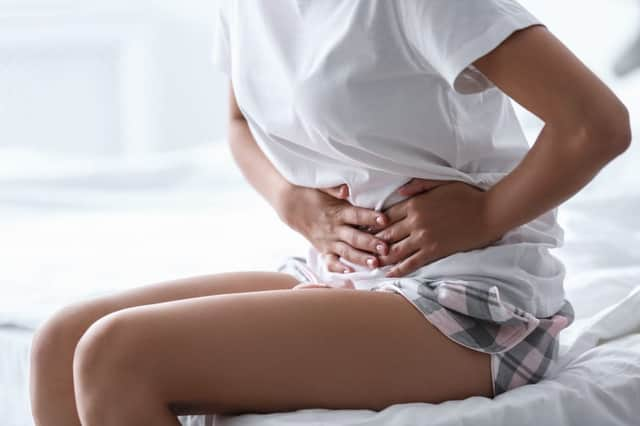These are the signs and symptoms of endometriosis you need to know about


A team of scientists claims to have identified the “prime cause” of endometriosis, raising hopes for a cure for the painful, long term condition.
Researchers, from both Warwick and Edinburgh universities, attributed the cause to a type of white blood cell called macrophages that has mutated or undergone some form of change.
Hope for a cure


Advertisement
Hide AdAdvertisement
Hide AdThe study, published in a recent Federation of American Societies for Experimental Biology Journal paper, aimed to determine the role of macrophages in producing pain associated with endometriosis.
Scientists ran various tests on mice for the study and found that targeting the altered white blood cells could be a novel form of treatment as it doesn't require the use of hormones.
Dr Erin Greaves, senior author of the study, explained that current conventional treatments that use hormones are "not ideal", as they target ovarian function and can trigger side effects, such as suppressing fertility.
The team found that "disease-modified" macrophages stimulate nerve cell growth and activity by releasing the growth hormone insulin-like growth factor-1 (IGF-1).
Advertisement
Hide AdAdvertisement
Hide AdLevels of IGF-1 in pelvic cavity tissue from women with endometriosis were found to be higher than in women without the condition, with further tests revealing that blocking the cell receptor for the hormone "reverses the pain behaviour observed in mice with endometriosis".
Dr Greaves explained, "If we can learn about the role of macrophages in endometriosis, then we can distinguish them from healthy macrophages and target treatment to them".
Previous studies have already shown that macrophages have a central role in the development of endometriosis, with the most recent research finding they help nerves to grow in the lesions.
New research attributed the cause of the condition to a type of white blood cell that has mutated (Photo: Shutterstock)
What is endometriosis?
Advertisement
Hide AdAdvertisement
Hide AdEndometriosis is a long term condition where tissue similar to the lining of the womb starts to grow in other places, such as the ovaries and fallopian tubes.
It affects one in 10 women in the UK and can affect women of any age, but it is most common in those in their 30s and 40s, according to the NHS.
Symptoms of the condition can vary, but the main signs to look out for are:
pain in your lower tummy or back (pelvic pain) - this is usually worse during your periodperiod pain that prevents you from carrying out your normal activitiespain during or after sexpain when going to the toilet during your periodfeeling sick, constipation, diarrhoea, or blood in your urine during your perioddifficulty getting pregnant
Advertisement
Hide AdAdvertisement
Hide AdSome women may also suffer heavy periods and symptoms can sometimes lead to feelings of depression.
Treating the condition
There is currently no cure for endometriosis, but treatments are available to help ease the symptoms, including:
painkillers - such as ibuprofen and paracetamolhormone medicines and contraceptives - including the combined pill, the contraceptive patch, an intrauterine system (IUS), and medicines called gonadotrophin-releasing hormone (GnRH) analoguessurgery to cut away patches of endometriosis tissuean operation to remove part or all of the organs affected by endometriosis - such as a hysterectomy
If you experience the symptoms of endometriosis and they are having an impact on your life, it is advised you speak to your GP.
Advertisement
Hide AdAdvertisement
Hide AdThe NHS recommends writing down your symptoms before visiting your doctor and completing a pain and symptoms diary created by Endometriosis UK.